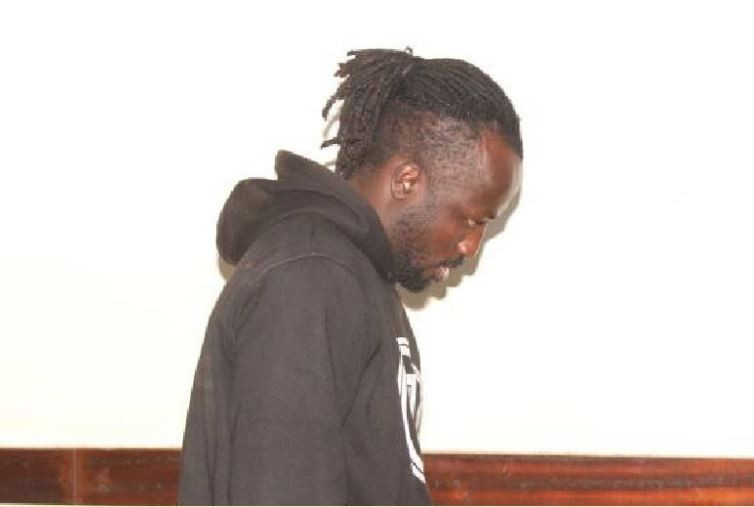By Ted Malanda
When the adult becomes a baby
Nothing warms my heart more than watching a dusty looking boy or girl walk home from school.
For me, the picture is never complete unless they have dust in their hair and socks, or what remains of them, look like they have been dug up from an archeological site.
Often, their shoes are caked with mud, never mind that it is the dry season, and their school sweaters have holes exposing awfully dusty elbows — on a Monday.
Then I know those children had a fruitful day. They played, wrestled, fooled around, got into mischief, lied their way out of it, got caught and whipped and generally got an education.
Rare
But such children are getting rare by the day. Children as so perfumed these days, so tidy and programmed to be clean.
They must wash their hands before every meal, not swim in ponds, not step in dirty water, not play in the rain and not eat things that fall off the table. It is a miracle they even manage to fall sick.
Put differently, we are raising a generation of youth who can’t take risks, a people averse to danger and adventure.
No wonder it is no coincidence that the most innovative survival techniques and small time business models emerge from slums, and not in middle class homes and universities. Thank God slum children remember adventure.
Our children are protected to ridiculous heights. We even escort Standard Eight pupils to the bus stop to catch the school bus and have a maid waiting for them at the same spot in the evening.
Even when they are in Form Four, we insist on taking them to school and picking them up on closing day. We escort them to university on the day they report and buy them furniture when they graduate.
Cars
And then we get shocked when they regress as young adults — drinking themselves into stupor, driving from one pub to pub till morning on Friday nights and remaining drunk all weekend.
Stay informed. Subscribe to our newsletter
We get surprised when they go to watch rally cars perched on the rooftops of their cars, sitting on car doors with their heads propping out of the window, yelling like lunatics and hoisting beer bottles. We get shocked when this mindless recklessness kills them, forgetting that they are being the children they never were.
We merely protected them so much that they never were that dusty looking, hole-in-the-elbow, nicely educated child trudging home on Monday evening.
Eating the national cake
It is a picture an artist would kill for — the matronly woman perched on the rear end of a bicycle taxi, her arms wrapped protectively around an enormous cooking pan and a cooking stick.
The rider will deposit her at her doorstep. An army of children will emerge. Noses running, distended bellies rumbling, they look at her — eager and impatient for whatever tidings her basket brings.
Meanwhile, her good for nothing husband watches, loafing from beneath the shade of a tree that has, like his children, grown up on its own.
Occasionally, he swats an imaginary fly away with a flywhisk and barks at nothing, his face contorted to mirror the furious generation of wisdom and thunder where none exist.
Gunshot
In a short while, the sweet scent of baking ugali wafts from the kitchen to his nostrils, causing his tummy to rumble, like a gunshot. And then the much-awaited call: Lunch is served, his turn to eat.
But just when she is pushing the table closer to him like the feudal lord he is, a gay voice hails her from the doorway. That voice suggests a level of bonhomie that only exists in the caller’s imagination, something akin to “wananchi wapendwa”.
“Oh... Not again!” the long-suffering woman groans inwardly.
She grunts, “Karibu,” without meaning it or dignifying her helpless “You are welcome” with a smile.
And as she offers a plate to this new loafer, her eyes glance with irony at a framed picture on her wall proclaiming Jesus Christ to be the ‘uninvited guest at every meal’.
Artist
And this new loafer, he is an artist. He can really jaw it. He talks all the time, dramatising for effect, mimicking and laughing. But it is all a ploy because as he yaps, he hogs.
His style of eating is horned from many years of experience. Instead of focusing on the portion nearest to him, his hands meander to the side of the mountain of ugali nearest his host. He rips off a huge chunk, molds it into a humongous chunk — all the while talking his head off.
Then he ponderously swirls it in the thick gravy and flings it in his mouth, his face taut with expectation. So huge is the bolus that it twists one cheek sideways, yet he is still rapping.
Even when he forces it down his bulbous throat, where it slums down with a ferocity that could wake up anti-corruption officials if their outfit wasn’t a ghostly graveyard, he is still yapping.
Starving
Four more chunks and the ugali is gone. His host, a fellow loafer, but who in manners eating is a mere councillor, a small but corrupt city council askari, a lowly traffic policeman, curses. He is still starving.
But behind the house, in the small sooty kitchen, the woman of the home sits surrounded by children in various stages of malnutrition fighting over crumbs.
And when she emerges with a kettle of sugarless black tea, the uninvited guest at every meal waves her away, saying it is no good for his stomach. He only ‘drinks’ tea when it has milk — lots of milk.
 The Standard Group Plc is a
multi-media organization with investments in media platforms spanning newspaper
print operations, television, radio broadcasting, digital and online services. The
Standard Group is recognized as a leading multi-media house in Kenya with a key
influence in matters of national and international interest.
The Standard Group Plc is a
multi-media organization with investments in media platforms spanning newspaper
print operations, television, radio broadcasting, digital and online services. The
Standard Group is recognized as a leading multi-media house in Kenya with a key
influence in matters of national and international interest.
 The Standard Group Plc is a
multi-media organization with investments in media platforms spanning newspaper
print operations, television, radio broadcasting, digital and online services. The
Standard Group is recognized as a leading multi-media house in Kenya with a key
influence in matters of national and international interest.
The Standard Group Plc is a
multi-media organization with investments in media platforms spanning newspaper
print operations, television, radio broadcasting, digital and online services. The
Standard Group is recognized as a leading multi-media house in Kenya with a key
influence in matters of national and international interest.









